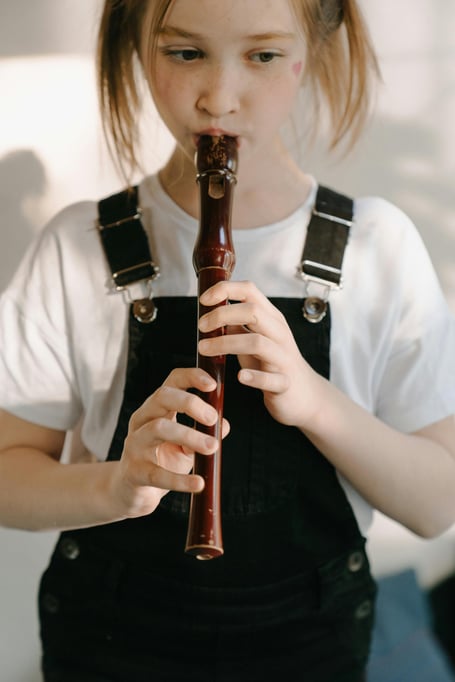Parents across the land are cheering and nodding at the news that the recorder is on the wane as the instrument of choice for teaching music in primary schools.
Anyone of a certain age reading those words will be picturing an Aulos plastic recorder and a red book by Priestley and Fowler, their distant memory playing a squeaky and tuneless rendition of London’s Burning or Three Blind Mice.
Granted, a lot of people never progressed from making a bloody awful racket, their nearest and dearest cursing music departments and perhaps considering legal action to pay for the repair of their shredded eardrums.
But for others the recorder was the foundation of a lifelong love of music. I consider it unfairly maligned, and would like to make a strong case in its defence.
What’s so great about the recorder? It’s portable and inexpensive, and therefore accessible to all. It’s simple to play but effective, honing fine motor skills and dexterity.
I recall tootling on my descant (keep it clean at the back there) through book number one, progressing onto its green sequel. I still have them somewhere, and my recorders – yep, you read right, that’s plural.
I took to it so well, my descant acquired a couple of siblings: the mellow treble and the ear-splittingly high sopranino. I’m not about to claim I’m a pro, capable of transporting you back to the 1600s with a pitch-perfect rendition of Greensleeves, but I was happy to harmonise with equally keen mates.
I learned how those little black dots translated into the music I loved so much on the radio. It was like learning a language, before I’d even started on French, Spanish and shorthand. The different recorders had different clefs, much as languages use the same letters in different ways.
To this day, I love my dots and can’t settle with the hand signals beloved of modern choral directors with mixed flocks. I’m not knocking it, but it’s not for me.
Around the age of nine, I took home a ‘cello. I’d met a boy on holiday who played one, and thought it sounded interesting (more so than the boy, who eyed me with mutual suspicion). I also thought it was the size of a violin, and my mum certainly got a shock when I lugged the thing home.
This was the key to joining a youth orchestra and learning the art of teamwork. I’m still most comfortable when hiding behind a harmony part rather than in exposed solo work. Thanks to philanthropic funds, I was able to acquire my own ‘cello and a decent bow; it's been a while since I found anyone to play with, but I hope to go back to it one day.
It all started with the recorder. Sadly, its death knell was sounded during the pandemic, when fears of aerosol transmission ruled out sharing instruments and made classroom activities difficult. It has been overtaken by stalwarts like the piano and keyboard, while upstarts including the ukulele and electric guitar have also gained traction.
Singing also plays a big part in music learning – most of us have grown up listening to popular music, unlike older generations. I can usually guess which genre Desert Island Disc participants will lean towards – although I’m heartened to learn that a survey by the Royal Philharmonic Orchestra showed a surge of interest in classical music among 18 to 25-year-olds, with 55 per cent claiming to listen as a form of escapism.
I was amused to read, however, that this was fuelled largely by TikTok and Spotify aiming to create “a sense of idyllic serenity”. I’m guessing the 1812 Overture or Stockhausen didn’t feature high on that list; more Ludovico Einaudi, who is tagged by Spotify as “classical in the background” and has 8.1 million monthly listeners, knocking Bach, Beethoven and all other classical names into a cocked hat.
Whatever: it’s not my job to criticise other people’s musical tastes. The fact is, music has clear mental health benefits, boosting your mood and encouraging a wider interest in life beyond work.
Because, contrary to what politicians will tell you about needing the next generation to be world-leaders in AI or tech, life isn’t exclusively about those things. We also need the next generation of musicians to keep us happy - and the music industry's contribution to the UK economy was £6.7-billion in 2022.
So why does the UK have one of the lowest levels of government spending on arts and culture among European countries? It has slashed its culture budget by 6 per cent since 2010, while others increase theirs - Finland by 70 per cent, which might explain why it does so well in Eurovision (and we don’t).
So please don’t consign the recorder to the dustbin just yet. Get yours out, dust it off and do your bit for its revival.





Comments
This article has no comments yet. Be the first to leave a comment.